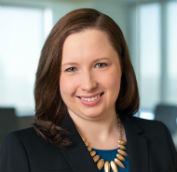Public Comment Period Open for New Assisted Living License Regulations
On December 14, 2020, the Minnesota Department of Health (MDH) opened the official public comment period on the Assisted Living Facilities Proposed Rules in advance of a virtual public hearing to be held January 19-20, 2021. While many of the standards for assisted living facilities remain unchanged, the rules do substantially augment Minnesota Statutes, section 144G in several areas. Key takeaways for assisted living facilities include the following:
Assisted Living Facility Licensure. Beginning on August 1, 2021, all individuals, organizations and government entities which "manage, control or operate" an assisted living facility in Minnesota, or "advertise, market or otherwise promote" a facility as providing assisted living services or specialized care for individuals with dementia will be required to obtain an assisted living facility license.
The rules provide an option for assisted living facilities to obtain a single license for an entire campus. Campus-wide licensure is available for assisted living facilities with two or more buildings on a campus that are operated by the same licensee as an assisted living facility. A campus is comprised of one of the following:
- A single building with two or more addresses, located on the same property with a single property identification number
- Two or more buildings, each with separate addresses, located on the same property with a single property identification number
- Two or more buildings, each with separate addresses, located on properties that share a portion of a legal property boundary, but having different property identification numbers
For assisted living facilities providing specialized care for those with Alzheimer’s disease or other forms of dementia, the organization must obtain an "assisted living facility with dementia" care license for either (i) the entire campus or (ii) the individual building used for dementia care prior to providing the dementia care services.
Assessment requirements. During the admissions process, the facility director, in cooperation with the clinical nurse supervisor, is responsible for conducting nursing assessments or reassessments to determine if the facility is qualified to provide sufficient care and supervision. Each facility must develop uniform assessment tools using an acceptable form or format. The rules contain detailed requirements for the assessment tools, some of which include:
- Resident lifestyle choices
- Resident daily living activities
- Activities which the resident is capable of handling individually
- Physical, mental and emotional health of the resident
- Medical conditions
- Communication ability
Resident Safety. The rules contain several provisions intended to enhance resident safety, including a requirement that each assisted living facility develop a missing resident plan that requires an escalating series of actions to identify and locate residents who wander from the facility.
Minimum Staffing and Training Requirements. Facilities must maintain a minimum complement of staff on-site at all times. Additionally, facilities must establish and maintain policies for staff orientation, training and competency evaluation. In addition to other requirements, the policy must identify the requirements for retraining staff when the facility determines that a staff member is not demonstrating competency. If retraining does not result in competency, the facility must take action to protect resident rights until competency is achieved.
Resident termination and discharge. The rules expand resident rights regarding termination and discharge from assisted living facilities.
Prior to termination, a facility must provide the resident with a written notice that includes a detailed explanation of the reasons for termination and the resident's rights at a pre-termination meeting. Additionally, within 24 hours after a pre-termination meeting has occurred, the facility must provide the resident with a written summary of the meeting, including any agreement reached during the meeting.
After termination, or if the resident decides to move out of the facility because the facility initiated pre-termination proceedings, the facility must hold a planning conference to develop a written relocation plan with the resident, the resident’s representative, case manager and any other invitees.
The facility must also provide the resident with a written discharge summary at the time of discharge and send the receiving facility information concerning the resident, including the resident’s most recent service or care plan and the resident’s current “do not resuscitate” order and “physician order for life sustaining treatment.”
Facility Closure or Relinquishment. When a facility closes or the owner decides to relinquish an assisted living license, the facility must submit to MDH a plan for closure or relinquishment outlining its plan for notifying and safely relocating residents.
For more information or if you would like assistance in preparing a formal comment regarding the rules, please contact Laura Nelson, Jason Engelhart, Zack Sheahan or the Stinson LLP contact with whom you regularly work.
